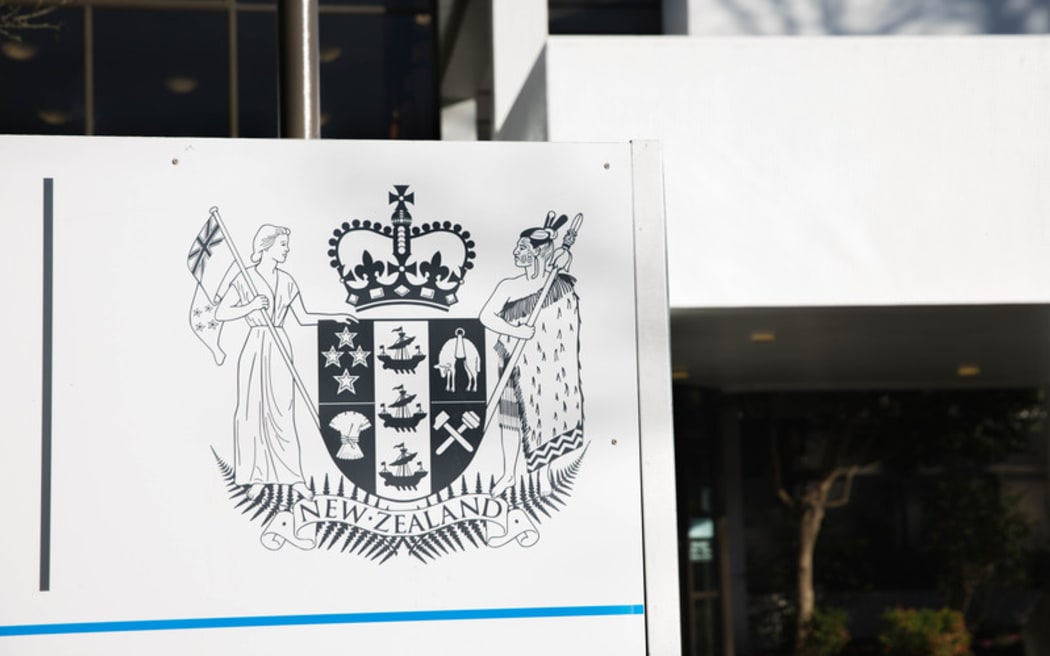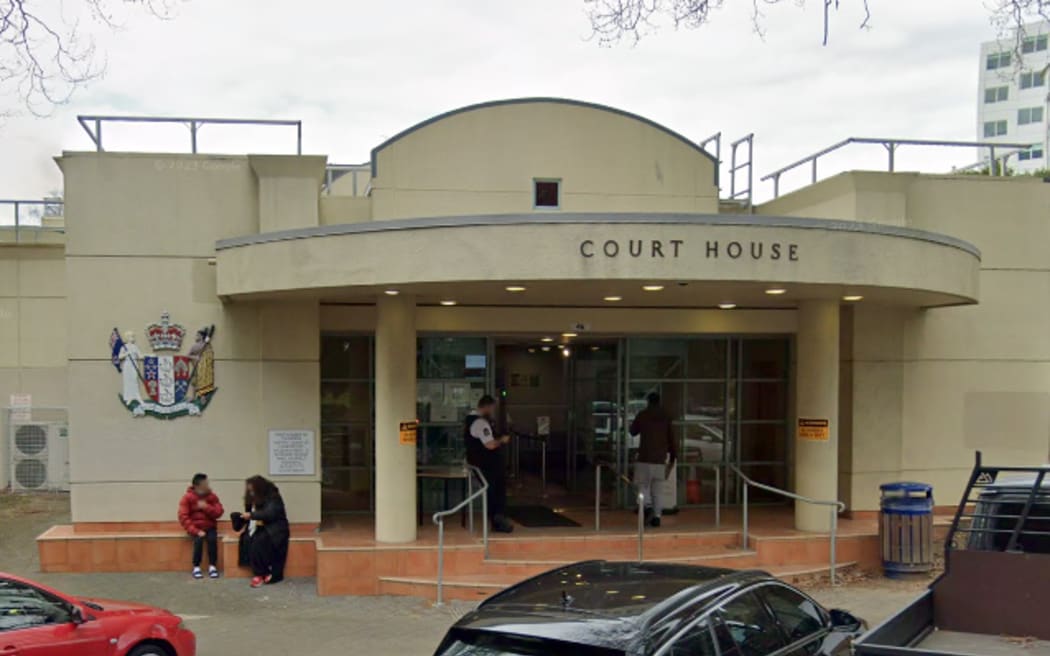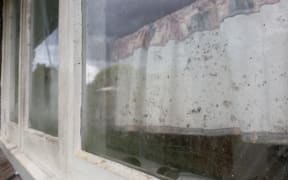
Court users "have been pulling their hair out for years and years", Rotorua criminal barrister Andy Hill said. Photo: RNZ / Cole Eastham-Farrelly
Black mould. Lights loose and dangling from the ceiling. An entire courtroom flooded.
Those are just some of the problems Rotorua criminal barrister Andy Hill says he has witnessed in local courtrooms that, nevertheless, have had to take on the extra weight of High Court work from Tauranga because it is in even worse shape.
"The court here is an absolute disgrace, quite frankly," Hill said.
Ministry of Justice papers released to RNZ say families, lawyers and court staff are being impacted by a host of poor and very poor buildings, especially in the upper North Island and among district courts.
The ministry's own assessment is that it has spent only a fraction of what it should have on upkeep and infrastructure - but that it would now do better.
A revamp to turn Tauranga into a "model" court - trumpeted by the government four years ago - has not yet begun, been pared back, and doubled in price to $208 million for the part that is left.
The courtrooms there that have holding cells are in a leaky, dodgy building.
"I've appeared on a jury trial in Tauranga where a fire alarm went off in the cells there at the back and flooded the entire courtroom," Hill recounted. "The trial had to be moved to a different court because literally water was coming up past the desks."

Tauranga District Court. Photo: Google Maps / Supplied
While the ministry reassesses its properties to prioritise spending, the delivery of justice was suffering, both Hill and crime victim advocate Ruth Money told Nine-to-Noon on Wednesday.
Court users "have been pulling their hair out for years and years", Hill said.
The impacts rippled out to victims, defendants, jurors, lawyers and court staff.
Victims suffered as they waited up to three years for a trial, and facilities forced them into close proximity with the accused once a hearing took place, Money said.
"I'm at Manukau District Court today and I have to walk through the door with a rape survivor," she said.
"Her abuser and their whānau will be at security and hovering outside the courtroom door. That's the state of it.
"I invite the minister, I invite the ministry staff, come and do a day with me and have a look at this utter rubbish that you are expecting people to survive, literally survive. It's just a shambles .... heads should roll."
Judges were not immune, Hill said.
"Three or four years ago the judge's lunchroom [in Rotorua] had to be shut down and professionally cleaned because there was black mould throughout it."
Yet Rotorua was being required to stretch: Earlier this year it had to fit in a 13-week trial from Tauranga, sucking up resources, he said. Ministerial notes mention this regular extra stress, too.
As for defendants, "the cells downstairs in the Rotorua courtroom are an abomination", Hill said.
"They are a concrete, very cold, very sterile, horrible place to be. And often people are held down there for hours and hours."
For complainants and their supporters, "if the facilities themselves are just second-rate, and are falling down around you, it just compounds what is already a very stressful situation".
Money was on an advisory group that called four years ago for courts to be revamped, prompting the government to state: "Victims routinely provide feedback about the alienating and distressing environment of the courthouse" and pledging $100m for a new "model" courthouse in Tauranga by 2025 - with construction now not due to start till next year.

Ruth Money. Photo: Stephanie Creagh Photography
That advisory group has since disbanded.
"The buck stops at the end of the day with the minister," Money said.
"However, my experience is that the ministry are the ones that are supposed to be doing their jobs. This is a systemic issue that just shows... they are not being accountable to the public.
"This is costing people their lives," she said of survivors grappling with self-harm, being put under unnecessary extra stress.
The Ministry of Justice was approached for comment.
Tauranga was one of 13 key projects, currently costed at $720m, and rising.
Rotorua was there, with land bought recently to build a new court, but at pre-business case stage hazily costed at $50-60m. It had no timeline.
Previous redevelopment plans were shelved, Hill said.
"Heaven knows how long that's going to take."
The ministry put the price-tag to upgrade its neglected estate at $1b over 10 years, but pressures were pushing that up all the time.
Ministry of Justice response
The ministry told RNZ on Wednesday the state of its properties was "due to historic underinvestment".
"We have an ambitious plan to improve our courthouses," acting deputy secretary corporate and digital services Steve Sim said.
He listed a clutch of current projects, though he did not differentiate between those still in design phase, versus actually being built or repaired.
"The ministry is about to finish a weathertightness remediation project at North Shore District Court."
Of the 13 key projects, this was the only one that was in the 'delivery' stage.
Papers showed the North Shore job was delayed due to planners discovering too late that extra structural elements were needed. The price rose from $10-15m to $18m.
Sim mentioned Whanganui and Tauranga were "underway". Both were in the design stage - Whanganui three years overdue, Tauranga two years.
Four seismic jobs he mentioned were not due for completion till 2027/28.
Waitākere, Rotorua and Papakura had bought land, he said. Papakura was called a "major rebuild" in documents, with a mere $10-15m price tag - it was only at pre-business case stage.
"We also plan to invest more in maintaining our courthouses," Sim said.





